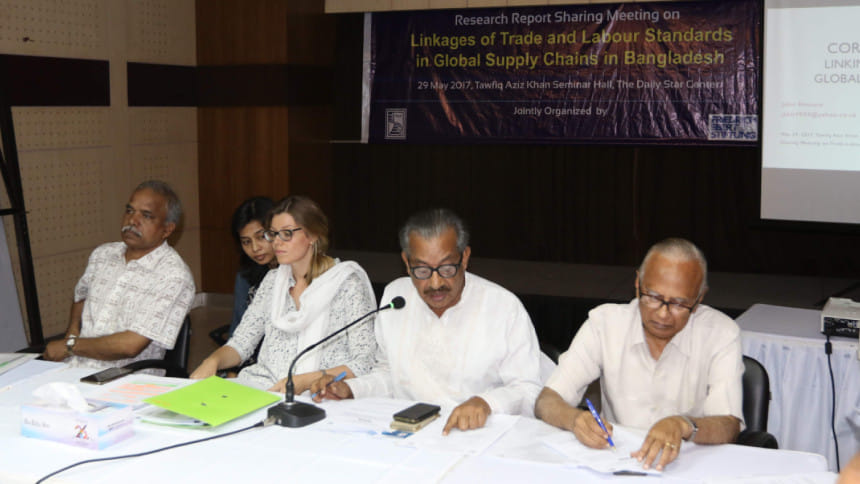Factories don't follow standards for work-hour, study finds

Factories in Bangladesh follow some core labour standards of the International Labour Organisation, but they do not properly follow the non-core standards for minimum work-hour and workplace safety, a study finds.
Germany-based organisation Friedrich-Ebert-Stiftung (FES) and Bangladesh Institute of Labour Studies (BILS) jointly conducted the focus group study between October last year and May 2017 by interviewing workers and the unionists.
The findings of the study were revealed at a programme jointly organised by FES and BILS at The Daily Star Centre in the capital yesterday.
The country's image will be even brighter and more trade will come to Bangladesh if the labour standards can be implemented properly at the factory levels, said Jakir Hossain, lead researcher of the study and a professor of Rajshahi University.
The country needs to improve monitoring to create pressure on the employers to maintain minimum work-hour for the garment and leather workers, the study suggested.
The study also recommended the minimum wage of the labourers be increased.
Development of any industry depends on the warm relationship between the workers and the employers, said Wajedul Islam Khan, joint general secretary of BILS.
The relationship between the employers and workers will improve if the international labour standards are maintained, Khan said.
He also urged the government and the factory owners to allow the workers to be organised and to form trade unions so that they can be united for their rights.
Franziska Korn, resident representative of FES Bangladesh; Syed Sultan Uddin Ahmmed, executive director of BILS; Abdul Malek, general secretary of Tannery Workers Union, and Nazma Akhter, executive director of Awaj Foundation, also spoke.

 For all latest news, follow The Daily Star's Google News channel.
For all latest news, follow The Daily Star's Google News channel. 



Comments